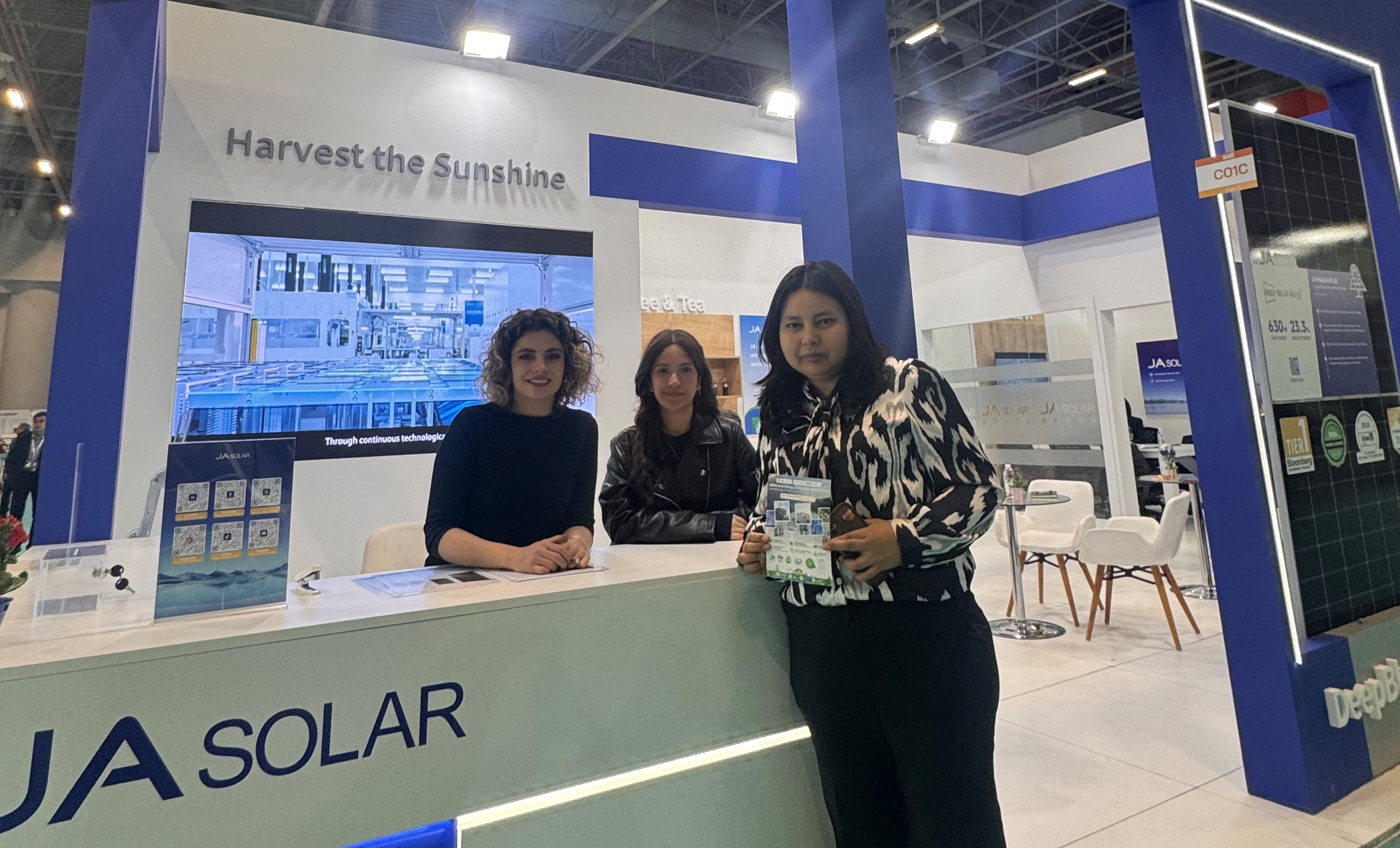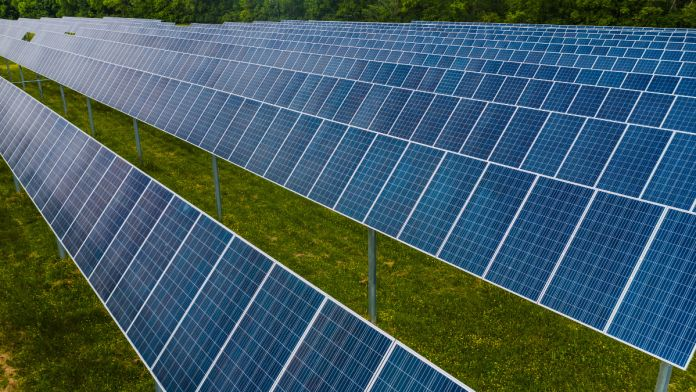Date:2025-06-30
With the ASEAN Smart Energy & Energy Storage Expo 2026 set to take place in March 2026 in Bangkok, Thailand, this flagship event will focus on solar PV, energy storage, batteries, power systems, and smart energy solutions. As the official organizer, we present a comprehensive overview of Thailand’s 2025 solar PV and energy storage market, providing strategic reference for enterprises looking to expand into Thailand and the broader ASEAN region.
I. Thailand’s Solar PV and Energy Storage Market Outlook
In 2025, Thailand’s solar and energy storage market enters a new phase of accelerated growth. As one of the earliest countries in Southeast Asia to push renewable energy development, Thailand has implemented key initiatives such as the Alternative Energy Development Plan (AEDP) and the Power Development Plan (PDP). According to the Ministry of Energy, by 2037, renewable energy is expected to account for over 30% of total power generation, with solar PV capacity exceeding 15 GW.
Driven by rising electricity costs, stricter carbon policies, and green supply chain demands, more enterprises are investing in integrated “solar + storage” systems—especially in industrial parks and commercial buildings. In addition, the government’s 2024 community-based solar incentives have spurred the growth of small to medium-sized distributed PV installations.
In terms of energy storage, Thailand is steadily moving toward commercialization due to the increasing share of renewables and rising grid balancing needs. Off-grid storage, EV-charging applications, and backup power for industrial users are all seeing growing demand—particularly in southern islands and remote areas where microgrids combined with storage are becoming vital solutions.
Thailand is also evolving into a regional battery manufacturing and export hub. With ASEAN regional integration progressing, locally manufactured storage batteries are gaining a competitive edge across Southeast Asia.
II. Industry Segmentation
Thailand’s solar PV and energy storage industry can be segmented as follows:
1. By Technology
Photovoltaic (PV): The dominant and most mature technology across the Thai market.
Concentrated Solar Power (CSP): Currently with limited market share, but future growth potential exists as the technology matures.
2. By Application
Utility-scale Projects: Ground-mounted and floating solar plants, such as the Bhumibol Dam floating PV park.
Rooftop Installations: High demand from both residential and commercial users; companies like Charoen Pokphand Group (CP Group) have deployed PV panels at multiple sites.
3. By Market Player Type
Manufacturers: Producers of PV modules, inverters, and storage systems, including JinkoSolar, Trina Solar, Canadian Solar, etc.
Developers: EGAT, CP Group, and others developing both utility-scale and rooftop projects.
Service Providers: Companies offering installation, maintenance, and O&M services.
III. Government Policy and Incentives
The Thai government has implemented a series of policies and incentives to support the growth of the solar and energy storage sector:
1. National Target: Increase the share of renewable energy to 51% by 2037, with over 24 GW of solar PV.
2. Feed-in Tariffs (FiT): New FiT schemes set the base rate at THB 2.16/kWh for solar-only systems and THB 2.83/kWh for solar + storage, with 25-year contracts.
3. Investment Incentives: Tax holidays (5–8 years), import duty exemptions, 100% foreign ownership, land rights, and streamlined work permits for foreign staff.
4. Power Purchase Agreements (PPA): The government is preparing legislation to allow corporate PPAs starting in 2025, promoting market liberalization.
5. Energy Storage Promotion: National utilities are actively developing battery and pumped hydro storage, along with smart grid and distributed energy infrastructure.
IV. Key Market Trends
Expansion of integrated “PV +” models, including floating solar and agrivoltaics (Agri-PV).
Synergizing solar with conventional energy such as hydropower to improve grid stability.
Combined impact of tech advancement and policy support to drive large-scale, commercial deployment.
V. Thailand's Industry Ecosystem
Solar capacity additions are led by utility-scale and rooftop projects.
Energy storage is still in early stages, but the government is promoting localized battery production and system standardization.
International firms are bringing capital and technical know-how, while local players are improving integration and project management capabilities.

VI. Latest Developments
- The government continues to invest in smart grid infrastructure and energy storage capacity.
- Enterprises are piloting innovative concepts such as Agri-PV, floating solar, and microgrids.
- Hybrid hydropower + solar projects are demonstrating strong results and replicability nationwide.
VII. Competitive Landscape
Solar PV: SPCG, Energy Absolute, and Thai Solar Energy dominate locally, with strong competition from global brands like Trina Solar and JinkoSolar.
Energy Storage: BYD, GS Yuasa, and other global battery providers are establishing a growing presence, alongside proactive local players like Energy Absolute.
With growing competition and advancing technologies, the Thai solar and energy storage market is poised for rapid expansion and transformation in the coming years.
About the Expo: ASEAN Smart Energy & Energy Storage Expo 2026
As the leading platform in the ASEAN region for smart energy and energy storage, ASEAN Smart Energy & Energy Storage Expo 2026 will take place on March 25–27, 2026, at IMPACT Exhibition Center in Bangkok, Thailand. The event will feature cutting-edge solutions across solar, batteries, storage systems, smart grids, microgrids, and green manufacturing, attracting 400+ exhibitors and 18,000+ professional visitors.

---------
การวิเคราะห์ตลาดเซลล์แสงอาทิตย์และการจัดเก็บพลังงานในกรุงเทพฯ ประเทศไทย ปี 2025
— บทวิเคราะห์ตลาดเพื่อเตรียมความพร้อมสู่มหกรรมพลังงานอัจฉริยะและการจัดเก็บพลังงานแห่งอาเซียน ASEAN Smart Energy & Energy Storage Expo 2026
มหกรรมพลังงานอัจฉริยะและการจัดเก็บพลังงานแห่งอาเซียน ASEAN Smart Energy & Energy Storage Expo 2026 มีกำหนดจัดขึ้นในเดือนมีนาคม 2026 ณ ศูนย์แสดงสินค้า IMPACT เมืองทองธานี กรุงเทพฯ งานแสดงนี้จะเน้นเทคโนโลยีด้านเซลล์แสงอาทิตย์ ระบบกักเก็บพลังงาน แบตเตอรี่ ระบบไฟฟ้า และพลังงานอัจฉริยะ เป็นเวทีสำคัญในการเจาะตลาดพลังงานในภูมิภาคอาเซียน สำหรับผู้ประกอบการทั้งในและต่างประเทศ
1. การวิเคราะห์ตลาดเซลล์แสงอาทิตย์และการจัดเก็บพลังงานของไทยในปี 2025
ในปี 2025 ตลาดพลังงานแสงอาทิตย์และการจัดเก็บพลังงานของไทยกำลังก้าวเข้าสู่ช่วงเร่งการเติบโตอย่างชัดเจน ไทยถือเป็นหนึ่งในประเทศแรก ๆ ของอาเซียนที่ผลักดันนโยบายพลังงานหมุนเวียนมาอย่างต่อเนื่อง เช่น แผนพัฒนาพลังงานทดแทน (AEDP) และแผนพัฒนากำลังผลิตไฟฟ้า (PDP) ซึ่งระบุว่า ภายในปี 2037 สัดส่วนพลังงานหมุนเวียนจะต้องไม่น้อยกว่า 30% โดยกำลังการผลิตจากแสงอาทิตย์จะมากกว่า 15 กิกะวัตต์
แนวโน้มค่าไฟฟ้าที่เพิ่มขึ้น นโยบายด้านสิ่งแวดล้อมที่เข้มงวดขึ้น และแรงกดดันจากห่วงโซ่อุปทานสีเขียว ได้ผลักดันให้ภาคอุตสาหกรรมและพาณิชยกรรมเร่งติดตั้งระบบ “โซลาร์ + ระบบกักเก็บพลังงาน” โดยเฉพาะในนิคมอุตสาหกรรมและอาคารเชิงพาณิชย์ ขณะเดียวกัน รัฐบาลได้ออกมาตรการส่งเสริมพลังงานแสงอาทิตย์ระดับชุมชนในปี 2024 ซึ่งกระตุ้นการเติบโตของระบบโซลาร์แบบกระจายตัวขนาดเล็ก
ในด้านระบบกักเก็บพลังงาน ตลาดไทยกำลังเข้าสู่ระยะการค้าเต็มรูปแบบ การใช้งานขยายจากระบบควบคุมไฟฟ้าไปยังระบบไมโครกริด พลังงานสำรองในภาคอุตสาหกรรม และการชาร์จยานยนต์ไฟฟ้า โดยเฉพาะในพื้นที่ห่างไกล เช่น เกาะทางใต้และภูเขา ระบบ “ไมโครกริด + กักเก็บพลังงาน” กลายเป็นโซลูชันสำคัญ
ประเทศไทยยังเป็นฐานการผลิตแบตเตอรี่สำคัญในภูมิภาค และด้วยความร่วมมือระดับภูมิภาคในอาเซียนที่แน่นแฟ้น ทำให้แบตเตอรี่ที่ผลิตในประเทศมีความสามารถในการแข่งขันในตลาดส่งออกเพิ่มมากขึ้น
2. โครงสร้างอุตสาหกรรม
การจัดกลุ่มอุตสาหกรรมเซลล์แสงอาทิตย์และกักเก็บพลังงานของไทยสามารถแบ่งได้ดังนี้:
1. ตามประเภทเทคโนโลยี
พลังงานแสงอาทิตย์ (PV): มีการใช้อย่างแพร่หลายและพัฒนาแล้ว
ระบบรวมแสง (CSP): ยังอยู่ในช่วงเริ่มต้น แต่มีศักยภาพเติบโตสูง
2. ตามลักษณะการใช้งาน
โครงการขนาดใหญ่: เช่น โรงไฟฟ้าพลังงานแสงอาทิตย์ลอยน้ำที่เขื่อนภูมิพล
โครงการติดตั้งบนหลังคา: เป็นที่นิยมในภาคธุรกิจและครัวเรือน เช่น กลุ่มบริษัทเจริญโภคภัณฑ์ (CP)
3. ตามประเภทผู้เล่นในตลาด
ผู้ผลิตอุปกรณ์: เช่น JinkoSolar, Trina Solar, Canadian Solar
ผู้พัฒนาโครงการ: การไฟฟ้าฝ่ายผลิตแห่งประเทศไทย (กฟผ.), กลุ่ม CP
ผู้ให้บริการ: บริษัทติดตั้งและบำรุงรักษาอุปกรณ์พลังงาน
3. นโยบายและสิ่งจูงใจจากภาครัฐ
รัฐบาลไทยได้กำหนดนโยบายและมาตรการสนับสนุนดังนี้:
1. เป้าหมายพลังงานหมุนเวียน: ภายในปี 2037 พลังงานหมุนเวียนจะต้องมีสัดส่วน 51% โดยพลังงานแสงอาทิตย์มากกว่า 24 GW
2. อัตรารับซื้อไฟฟ้า (FiT): โซลาร์ทั่วไป 2.16 บาท/หน่วย, โซลาร์ + กักเก็บพลังงาน 2.83 บาท/หน่วย ระยะสัญญา 25 ปี
3. สิ่งจูงใจในการลงทุน: ยกเว้นภาษีนิติบุคคล 5–8 ปี, ลดภาษีนำเข้า, อนุญาตถือหุ้นต่างชาติ 100%, สิทธิครอบครองที่ดิน และจ้างงานแรงงานต่างชาติ
4. การซื้อขายไฟฟ้าโดยตรง (PPA): อยู่ระหว่างการออกกฎหมาย คาดว่าจะเริ่มใช้ปี 2025
5. การส่งเสริมระบบกักเก็บพลังงาน: เน้นระบบแบตเตอรี่, โรงไฟฟ้าพลังน้ำสูบกลับ และระบบโครงข่ายอัจฉริยะ (Smart Grid)
4. แนวโน้มสำคัญของตลาด
การขยายตัวของโมเดล "โซลาร์ +": โซลาร์ลอยน้ำ, โซลาร์เกษตร (Agri-PV)
การผสานพลังงานแสงอาทิตย์กับพลังน้ำเพื่อเสริมความมั่นคงของระบบไฟฟ้า
ความก้าวหน้าทางเทคโนโลยี + มาตรการสนับสนุน ส่งเสริมตลาดเข้าสู่ระดับพาณิชย์ขนาดใหญ่
5. ระบบนิเวศอุตสาหกรรมของไทย
การเพิ่มกำลังการผลิตมุ่งเน้นที่โครงการระดับพื้นดินและระบบติดตั้งบนหลังคา
แม้ว่าระบบกักเก็บพลังงานยังอยู่ในระยะเริ่มต้น แต่รัฐบาลมีแผนพัฒนาระบบมาตรฐานและส่งเสริมการผลิตในประเทศ
ผู้ประกอบการต่างชาติเริ่มเข้ามาลงทุน พร้อมกับการยกระดับขีดความสามารถของบริษัทไทยด้านบูรณาการระบบ
6. ความเคลื่อนไหวของตลาดล่าสุด
รัฐบาลลงทุนต่อเนื่องในโครงข่ายอัจฉริยะและโครงสร้างพื้นฐานด้านพลังงาน
เอกชนเริ่มทดลองโครงการโซลาร์รูปแบบใหม่ เช่น โซลาร์เกษตร โซลาร์ลอยน้ำ ไมโครกริด
โครงการพลังน้ำ + พลังงานแสงอาทิตย์ประสบผลสำเร็จและสามารถขยายสู่ระดับประเทศ
7. ภาพรวมการแข่งขันด้านแบรนด์
เซลล์แสงอาทิตย์: SPCG, Energy Absolute, Thai Solar Energy เป็นผู้นำในประเทศ และมีการแข่งขันกับแบรนด์ต่างชาติ เช่น Trina, Jinko
ระบบกักเก็บพลังงาน: BYD, GS Yuasa และบริษัทไทยอย่าง Energy Absolute กำลังขยายตลาดอย่างต่อเนื่อง
ตลาดมีแนวโน้มแข่งขันรุนแรงยิ่งขึ้นจากทั้งด้านเทคโนโลยีและบริการ
เกี่ยวกับงานมหกรรม:
มหกรรมพลังงานอัจฉริยะและการจัดเก็บพลังงานแห่งอาเซียน ASEAN Smart Energy & Energy Storage Expo 2026 จะจัดขึ้นในวันที่ 25–27 มีนาคม 2026 ณ IMPACT Exhibition Center เมืองทองธานี กรุงเทพฯ ครอบคลุมโซลูชันทั้งระบบ เช่น เซลล์แสงอาทิตย์ แบตเตอรี่ ระบบจัดเก็บพลังงาน โครงข่ายไฟฟ้าอัจฉริยะ ไมโครกริด และโรงงานสีเขียว คาดว่าจะมีผู้เข้าร่วมแสดงสินค้ากว่า 400 ราย และผู้เข้าชมมืออาชีพกว่า 18,000 คน

 Location >>
Location >> 
